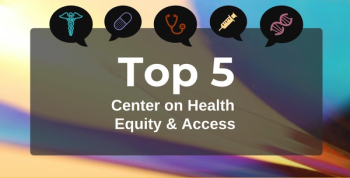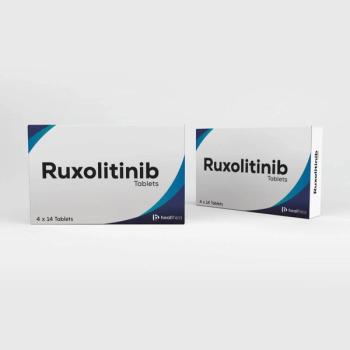
Health Care Delivery
Latest News
Latest Videos

CME Content
More News

Understanding postural orthostatic tachycardia syndrome is important in order to improve prevention and outcomes.

Throughout 2024, the Center on Health Equity & Access explored critical gaps in health care access and innovative efforts to address them.

A recent Federal Order from the US Department of Agriculture aims to track, prevent, and address contaminated dairy products while public health risk remains low.

The authors observed a significant increase in optimal starts for dialysis and in peritoneal dialysis rates after implementing a standardized end-stage renal disease transition pathway.

Since its founding in 2012, the National Association of ACOs has evolved from a group of 30 to 477 accountable care organization members covering 9.2 million beneficiary lives.

The top-5 most read articles on spinal muscular atrophy (SMA) span novel research in predictive biomarkers, the benefits of newborn screening, and findings that could reshape SMA as a multisystem disorder.

This year’s top diabetes content focused on pediatric metabolic health, misconceptions about weight loss drugs, and more.

Recent analyses spotlight inequities in health care, from the financial burdens faced by employees at small firms due to higher insurance costs to disparities in data and ovarian cancer survival among racial and ethnic groups.

Experts at the Council for Affordable Quality Healthcare (CAQH) Connect 2024 emphasized the transformative potential of artificial intelligence (AI) and predictive analytics in addressing health care challenges, advancing equity, and reducing clinician burden.

This survey study finds that most Missouri Medicaid providers had capacity for new patients, even during a period of unprecedented Medicaid enrollment growth.

A trio of experts discuss the importance of early diagnosis, treatment barriers, and therapies in the pipeline for idiopathic pulmonary fibrosis (IPF).

Tailored promotion of testing for HIV and sexually transmitted infections can help to reduce the incidence of HIV in adolescents.

A systematic review of quality-of-life tools available specifically for pulmonary arterial hypertension (PAH) reveals that although several instruments demonstrate strong psychometric properties and reliability, significant gaps remain in these tools' validation and methodological rigor.

Read about the diverse array of research presented at this year's meeting, including novel technological advancements and insights into disease progression in multiple sclerosis (MS).

Real-world study compares the efficacy and safety of axicabtagene ciloleucel (axi-cel) and tisagenlecleucel (tisa-cel), finding that axi-cel provides superior progression-free survival but with higher toxicity.

This recent study sheds light on a remaining gap in spinal muscular atrophy (SMA) research and care considerations: the impact of spinal motor neuron (SMN) copy number.

Medicare accountable care organizations use preferred skilled nursing facility networks for postacute care management, although the size, structure, and resource allocation of networks vary widely.

A Yale School of Medicine team has created lists of criteria to help clinicians determine when next-generation sequencing (NGS) is appropriate for a patient with a myeloid neoplasm (MN), and when it is not.

Patients with ER-positive/HER2-negative metastatic breast cancer who received elacestrant experienced a significant reduction in disease progression or death compared with standard-of-care endocrine therapy.

The recommendations for surveillance account for newly identified hematopoietic malignancy predispositions (HMP) and HMP genes, as well as a greater understanding of the prevalence of germline variants putting children as an increased risk of MDS and other HMs.


Two posters presented at the 2024 American Society of Hematology meeting bolster evidence supporting the long-term clinical benefits of ruxolitinib for polycythemia vera and chronic graft-vs-host disease.

Older adults on Medicare Advantage had improved adherence and odds of a test return when a stool test was mailed to them for screening of colorectal cancer (CRC).

Researchers developed and tested an assessment tool to measure coordinated care for traumatic brain injury against the criteria of an integrated practice unit.

New insights underscore the value of considering sleep variability when addressing inequities in pediatric sleep health.

















